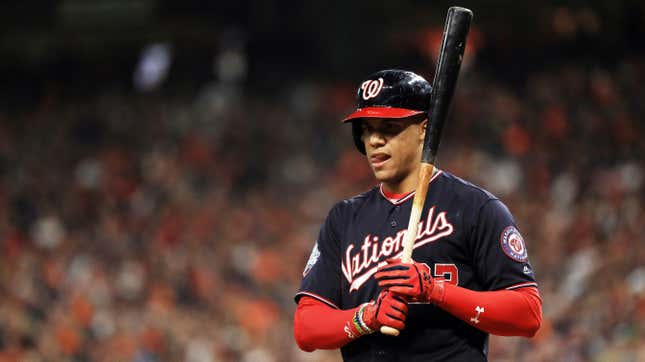

On Wednesday night, Game 7 of the World Series happened, and two teams played. Those two teams were the Washington Nationals and the Houston Astros. One of those teams won.
It was the Nationals! A first-time championship. This game took place at a ballpark named after a soft drink brand: Minute Maid Park in Houston. While I’ve been a basketball/NBA freak since birth, and I understand a football game enough to follow the Super Bowl, I’ve never quite gotten the logistics of baseball, nor the thrill of it. America’s sport.
These are the main things I know about baseball: 1) There are nine innings. 2) Two teams play against each other, and one has to win. 3) Home runs are good.
I know some smaller things as well. But that’s not enough. What we’re trying to do here is understand two things: 1) Baseball, and 2) Why the Nationals won the World Series. And I refuse to ask men for help.
I begin by messaging Jezebel’s Megan Reynolds, who knows baseball, “Okay, so how is baseball played?” I have asked this to many people previously and drifted off while hearing the answer.
-

-

-

-

-

-

-

-

-

-

-

-

-

-

-

-

-

-

-

-

-

-

-

-

-

-

-

-

-

-

-

-

-

-

-

-

-

-

-

-








































